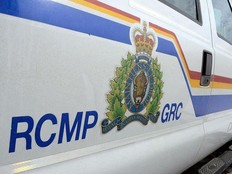Vancouver homeowner plagued by aphid infestation pleads for help but city says they are just a nuisance
Tiny bugs rain down from tree on city boulevard, kids can't play in the yard, but city refuses to even prune branches to alleviate problem, owner says

Article content
Parry Darred is fed up with the aphid infestation on the large city-owned tree in front of his east Vancouver home.
Aphids are small, soft-bodied insects that suck juice from plants and produce a sticky sap that drips off infested leaves.
Darred regularly has to pluck the fallen insects off the shoulders of his kids, ages 5 and 7, as they play outside. The thick, sugary sap they secrete — called honeydew — coats the sidewalk and his car. It’s a constant battle to scrape and wipe the windshield only for it to get covered again.
He’s turned to the city for help, but it hasn’t offered much assistance to the recurring problem.
“It’s really, really bad,” said Darred. “They’re all over the fencing. It’s all over my kids when they are outside playing on their little bicycles and scooters.”
He’s been living on the 2600-block of East 19th Avenue in Vancouver for around six years, but knows other residents on the street have been coping with the issue for longer. Residents in other parts of the city, including Kitsilano and Point Grey, as well as 46th Street near Fraser in South Vancouver, have also spoken up about intense aphid infestations.

“The city had no idea the (linden tree) variety they planted, Tilia Euchlora, was notorious for attracting massive numbers of aphids from May to November,” said Darred.
Douglas Justice, a longtime botany expert at the University of B.C., said that city planners going back to the 1950s were told by scientists in Europe that this Tilia Euchlora or Crimean linden tree was less susceptible to aphids compared to other kinds of linden trees.
He said they are “glorious trees,” but one mistake was to plant them in the road right-of-ways in the thousands on city blocks all over Vancouver in monoculture environments with little biodiversity that might temper the aphid explosion. He said in more recent years, a silver linden variety, which has hairs on the back of its leaves that ward off aphids, have been planted, but they are often still being done in a monoculture environment, such as in an isolated cluster in a shopping mall parking lot.
Allan Caroll, who studies insects at the University of B.C.’s department of forestry, said these aphids, which are small and wingless, have become an annual challenge.
“The aphids stick their mouths, which are like straws, into the vascular tissue of a tree. They’re seeking nitrogen and effectively, they are creating this sticky stuff that comes out of spigots off their back end,” he said.

Darred said when he calls the city, it offers a few suggestions, such as hosing down the tree with a heavy stream of water. That might be feasible with a smaller tree, but the one outside his property now towers over his three-storey house, he said.
“Plus, it’s hard to do that and keep hosing down the tree when there are tighter water restrictions.”
The city has also advised using predatory insects such as ladybugs or lacewings to control the aphids.
Carroll said the recommendation to hose the aphids off is a good one even if you can only get the lower parts of the tree as they get taller. He said they are soft-bodied insects that come off easily with water pressure. He added that with today’s climate and weather patterns, these trees are normal cooling sources that bring down the temperature.
The Vancouver park board said in a statement that “trees that are rated as high risk, according to the International Society of Arboriculture Tree Hazard Evaluation, are corrected first.”
It said staff review trees to reduce the possibility of “tree failure impacting people or property.”
It said that “aphids, though a seasonal impact are deemed only a nuisance. Aphids do not harm trees and we do not remove trees for nuisance issues.”
Bookmark our website and support our journalism: Don’t miss the news you need to know — add VancouverSun.com and TheProvince.com to your bookmarks and sign up for our newsletters here.
You can also support our journalism by becoming a digital subscriber: For just $14 a month, you can get unlimited access to The Vancouver Sun, The Province, National Post and 13 other Canadian news sites. Support us by subscribing today: The Vancouver Sun | The Province.







Postmedia is committed to maintaining a lively but civil forum for discussion. Please keep comments relevant and respectful. Comments may take up to an hour to appear on the site. You will receive an email if there is a reply to your comment, an update to a thread you follow or if a user you follow comments. Visit our Community Guidelines for more information.